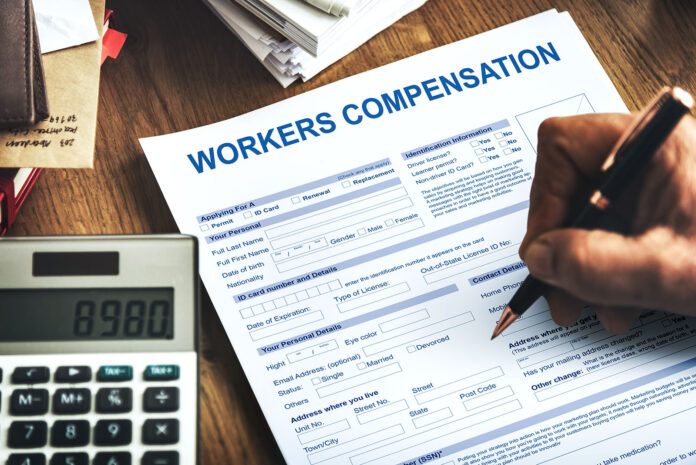
Workers’ Compensation helps employees hurt at work by giving them money and medical care. But, people don’t always think about how long they can get these benefits, which matters for their well-being. It’s important to understand how long benefits last so that injured workers can get the help they need to get better and keep living.
This article talks about why it’s important to know how long benefits last and gives advice on how injured workers can make their benefits last longer. If you want to learn how to get the most out of your benefits and keep your money stable when things are tough, keep reading for tips on dealing with Workers’ Compensation.
Are There Exceptions in Worker’s Compensation?
In some cases, Workers’ Compensation benefits may last longer than usual because of special situations like a very serious injury. For instance, if an employee has a severe injury that needs a lot of medical care for a long time, they might get benefits for a longer time than usual. Also, if an injured worker has problems that make their recovery take longer, they could get benefits for a longer time.
And if an injured worker can’t go back to work because of a permanent disability, they might also get benefits for a longer time. It’s important to think about each person’s situation and not just follow a set timeline. By recognizing these special cases and giving extra help when needed, employers can show that they are committed to making sure workers who face big challenges after a work injury get fair compensation.
What Does the Workers’ Compensation Timeline Look Like?

Employees and employers need to understand the Workers’ Compensation timeline. When an employee gets hurt at work, they must tell their employer within about 30 days. Then, the employer has to give the employee the right forms and instructions for filing a claim with their insurance company.
This period can change depending on the state. After the claim is sent, the insurance company needs time to investigate before deciding on benefits. The time it takes to get Workers’ Compensation benefits can change a lot based on things like how bad the injury is, what medical care is needed, and if there are any arguments during the claims process. Normally, temporary disability benefits are paid when the worker can’t work because of the injury. The worker might also get permanent disability benefits if needed.
Types of Workers’ Compensation in QLD
If you get hurt at work in Queensland, it’s important to act quickly. First, get medical help and a certificate. Then, tell your employer about the injury and give them the certificate. Next, file a WorkCover Claims in Queensland. Keep careful records of all documents related to the injury and claim.
There are two main types of workers’ compensation claims: statutory (no-fault) claims and common law claims. Statutory claims cover injuries without needing to prove fault, while common law claims involve taking legal action against the employer. In Queensland, all cases must start as statutory claims, regardless of the type of claim. People in Queensland need to understand these differences when dealing with workers’ compensation.
How Long Can You Stay on Workers’ Compensation?

Workers’ compensation benefits can last for different lengths of time. The severity of the injury and the state laws are important factors. Serious injuries may need more time to heal, so benefits may last longer. Each state has its own rules about how long benefits can last.
Some states have limits, while others can extend benefits in certain situations. Employers can also help injured workers return to work faster by giving them good medical care, support services, and modified work duties when needed. This can shorten the time workers need to get benefits.
Navigating the System for Extended Benefits
Seeking extended benefits can feel overwhelming, but there are steps to help. First, research the eligibility criteria and application process for the benefits program. Reach out to government agencies or advocacy organizations for reliable information.
Keep organized records of employment history, financial documents, and medical records to strengthen your case for eligibility. There are resources and support available to assist, such as workshops at local community centers. Online forums and social media groups can also offer support.
Balancing Recovery and Work Responsibilities

During the time you’re getting better, it’s important to find a balance between getting better and your work. It’s helpful to talk openly with your boss about what you need. Tell them about your recovery and ask for changes to your work if you need them.
You can also take short breaks during work to relax, like meditating or going for a quick walk. It’s important to keep talking to your boss while you’re getting better. Let them know how you’re doing and how it might affect your work. It’s good to offer solutions and be honest about what you can do. You can also use technology to talk to your boss, like video calls or quick emails.
Returning to Work – How It Impacts Benefits
When employees go back to work after getting hurt, it can affect their Workers’ Compensation benefits. Going back to work might change how much they get paid and if they can keep getting help. Workers and bosses need to know about any benefit changes and get advice from legal or money experts if they need it.
Also, everyone involved needs to talk openly to make sure the return to work goes well. It takes careful planning and thinking from both the boss and the worker to manage the return-to-work process. Bosses should give the right help and support to injured workers, and workers should talk about any problems they have when they go back to work. By creating a helpful environment and keeping communication open, both sides can work together to make sure the return to work goes well.
Seeking Professional Guidance

Legal and medical professionals are important for Workers’ Compensation claims. Legal experts help with understanding the law, filing claims, and negotiating with insurance companies. They can also represent individuals in court.
Medical professionals provide accurate assessments of injuries, document treatment plans, and advocate for necessary medical care. It’s important to seek professional help when facing challenges with Workers’ Compensation benefits, such as denial of benefits or disputes over injuries.
Understanding the Impact on Finances
Workers’ Compensation benefits can affect a person’s money situation a lot. If these benefits are the main way someone gets money, not knowing how long they will last can make it hard to plan how to spend money. This can cause stress and make it tough to pay for things like rent, utilities, and food. One way to handle this is to make a detailed budget that includes the fixed benefits and any other money coming in.
It’s important to spend money on important things like housing, food, and healthcare, and also save some money for unexpected costs. Finding part-time work or other community resources can also help when benefits are uncertain.
To manage finances while getting Workers’ Compensation, you need to plan and be resourceful. This will help you keep your financial situation stable, even if your benefits don’t last long.

Final Thoughts
It’s important to understand and make the most of your Workers’ Compensation benefits. Educating yourself about your benefits will help you get the support you need if you get hurt or sick at work. Don’t be afraid to ask your employer or a lawyer for help if you need it. Understanding your coverage will help you make smart choices.
To get an extension of your Workers’ Compensation benefits, you need to gather evidence and understand the claims process. Seeking medical treatment and collecting evidence early can help you get an extension if needed. You have the right to explore all options to get the best outcome for yourself. Being proactive now can save you time, stress, and money later on.








